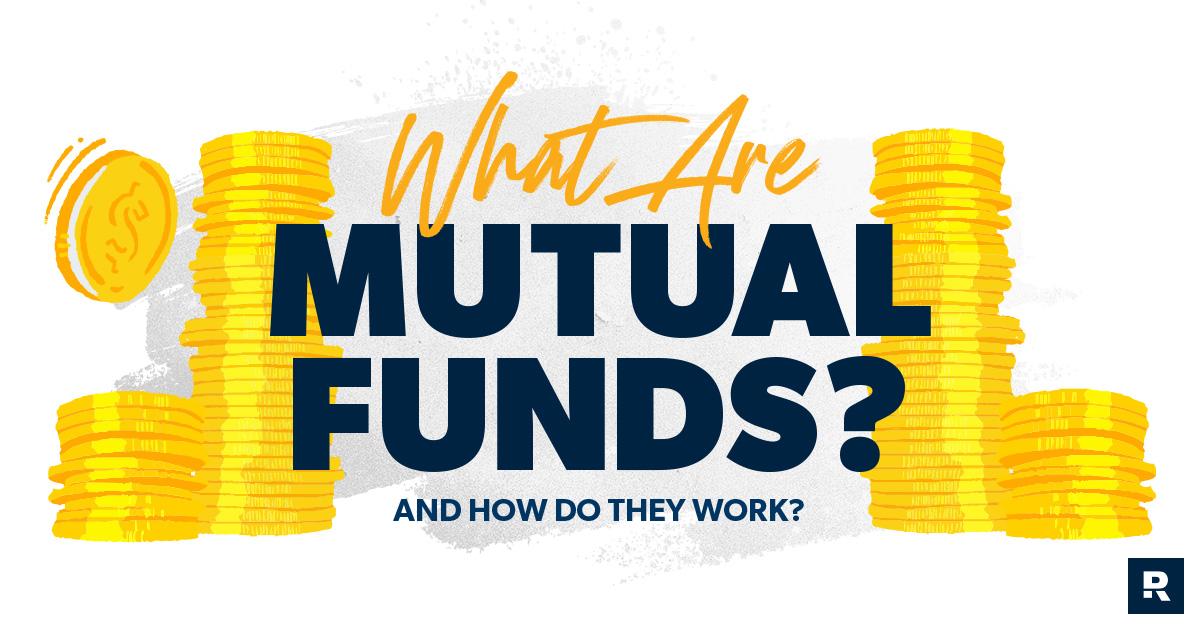Welcome, dear readers, to the perennial circus of investment advice where every self-proclaimed guru with a wi-Fi connection and a webcam fancies themselves the next Warren Buffett. It’s a spectacle full of jargon-happy hotshots tossing around terms like “portfolio diversification” and “risk mitigation” as if they’re reading from a sacred text. Let’s be real here—investing is not rocket science. It’s barely Ikea-furniture-assembly level difficult. Yet, people are out here acting like they’re decoding the human genome. Grab your coffee (or something stronger), park your skepticism at the door, and buckle up for a no-nonsense, snark-filled guide to demystifying the world of investing. Warning: This is not for the thin-skinned or the needlessly pretentious.
Cut the Crap: Why Your Spreadsheet Won’t Make You a Billionaire
Look, let’s talk sense here. You’ve got this fancy spreadsheet that you think holds the key to your financial empire, right? Sorry to shatter your dreams, but that digital labyrinth of cells and formulas isn’t your golden ticket. It’s just a tool, not an oracle.You don’t need to dive into the deep sea of data to make sound investments. Remember, you’re not a hedge fund manager, and odds are you’re not running wall Street from your basement. It’s time to wake up, rub some logic in those sleepy eyes, and realize that endless columns of numbers aren’t going to magically print money. You’ll need to step into the real world to make bank—not just live in a fantasy world of perpetual calculations.
here’s a solid piece of advice: keep it simple, stupid. While you’re busy becoming an Excel wizard, the rich folks are out there making moves. Here’s what you should really focus on:
- Start Investing: Put your money into something other than pie charts and pivot tables.
- risk Management: No, not the fancy graph you designed—actual strategies to minimize losses.
- Diversify: And I don’t mean the ‘tabs’ in your spreadsheet—think different sectors and markets.
| Myth | Reality |
|---|---|
| Complex formulas equal success | Simple strategies rule the day |
| More spreadsheets, more money | Smart decisions, bigger gains |

How to Stop Obsessing Over Every Market Blip Like It’s Your Ex’s Instagram
listen up! If you’re treating the stock market like a kaleidoscope of chaotic confetti every time something jerks up or down, you’re doing it wrong. It’s not just ridiculous; it’s exhausting. You wouldn’t peek at your ex’s social media every time they breathe, would you? (And if you do, STOP IT.) Your investments require time to mature—let them grow like your long-forgotten cactus you pretend to water. Studies show that staring at the minuscule market movements won’t make you richer,but it’ll definitely make you panic-buy comfort food. Instead, focus on the long haul. You’re not Gordon Gekko, and that’s for the best. The market is a soap opera, not a savior of your Netflix binge budget.
- Quit Rapid-Fire Trading: You look like a caffeinated bunny. Stop.
- Diversify and Chill: Variety is the spice of life, and the same goes for stocks. Spread out your money like cream cheese on a bagel.
- Set-and-Forget: Put your investments on autopilot. You didn’t frame those pictures to keep moving them around.Investment strategies work the same way.
| Things to Obsess Over | Things to Ignore |
|---|---|
| Your overall portfolio health | Daily fluctuations |
| Long-term goals | Random news headlines |
| Established investment plans | Clickbait articles |

Mutual Funds for Dummies: Trust the experts, Not Your Friend’s Bitcoin Tips
Listen up, folks—if your buddy Dave, who still thinks ‘mining’ involves pickaxes and coal, wants to sell you on Bitcoin tips, just politely nod and smile. Then do the opposite. Seriously, we get it; the allure of quick cash is like moths to a flame, but investing isn’t about chasing fads. It’s about easy-peasy stuff like mutual funds, where actual experts manage your money. Yes, experts—those humans with credentials, not Instagram-famous ‘financial gurus’ in their parents’ basements. Want less stress and more consistent returns? Put your trust where it belongs: in mutual funds. Here’s a pro tip: anxiety won’t pay your rent,but a well-managed fund just might.
Oh, and stop trying to time the market like it’s your morning commute—you can’t, you won’t, so get over it. Look, rather of panicking over meme stocks, how about you explore mutual funds that basically spread your money across a buffet of investments? Here’s why that’s brilliant:
- diversification: Not putting all your eggs in one basket; keeps you from financial Armageddon.
- Professional Management: Leave it to the pros—it’s like having a seasoned chef cook your gourmet meal.
- Liquidity: As sometimes you just need to get out—without the drama.
- Affordability: You don’t need a king’s ransom to start; your pocket change can do wonders.
Now, if you’re ready to choose smart over basic, here’s a quick cheat sheet that even your buddy Dave could understand:
| Key Benefit | Bitcoin Tips | Mutual Funds |
|---|---|---|
| Trustworthiness | HAHAHA, good one! | Regulated |
| Complexity | Mind-boggling | Easy as Sunday morning |
| Expertise Needed | Too much | Minimal |
So next time you get a hot tip from some crypto bro, remember: sometimes simple is smart, and smart wins the marathon, not just the sprint.

Enough with the Buzzwords: Get Your Lazy Butt an Index Fund, Already
Alright, listen up, financial whiz kid. You don’t need a crystal ball or a financial degree to play the investment game. The solution to your stock market woes doesn’t require decoding Wall street gibberish or keeping up with fast-talking TV pundits.Here’s the secret: index funds. Why? Because they don’t suck.They simply follow the entire market without the stress of hand-picking stocks. Think of it like ordering a combo meal instead of mixing 20 different menu items. It’s convenient, and let’s face it, you’re probably someone who messes up basic recipes anyway.
Still skeptical? Alright, let me spell it out with a sparkle of pizazz. Benefits of index funds include:
- You get instant diversification—fancy talk for “don’t put all your eggs in one basket,genius.”
- Rock-bottom fees—because why pay more for people to just guess?
- Performance? Often better than those high-fee, actively managed funds your uncle swears by. Boom, roasted.
- No drama about picking stocks—save the drama for your Netflix series binges.
| Feature | Description |
|---|---|
| Low Fees | Less cash leaving your pockets. |
| Diversification | Own a slice of everything. Yes, everything. |
| Lazy-Friendly | Set it and forget it, like your New Year’s resolutions. |
Q&A
Q1: Why do people tend to overcomplicate investing?
Ah, overcomplicating investing—the hobby of choice for those who find Sudoku too pedestrian. People tend to overcomplicate investing because they think that solving complex equations makes them look smarter at cocktail parties. It’s as if they’re auditioning for a role in “The Wolf of Wall Street: The sequel.” In reality, they get tangled in a web of jargon and analysis paralysis, forgetting that the goal is to make money, not win a Nobel Prize in economics.
Q2: Isn’t it important to have a deep understanding of financial markets to be a triumphant investor?
Ha! If you wait until you have a “deep understanding” of everything, you’ll never get out of bed. Here’s a revelation for you: plenty of successful investors couldn’t tell you the difference between a bull and a bear market. investing isn’t about knowing the P/E ratio of every company on the planet—it’s about common sense and patience. So unless you’re planning to be the next Warren Buffet,you can take a chill pill on the PhD-level understanding and just start.
Q3: What’s a straightforward strategy for anyone new to investing?
Well, my soon-to-be financial guru, the straightforward strategy is to stop overthinking. Stick with low-cost index funds or ETFs and then, brace yourself, do NOTHING. Yep, you heard me. Do absolutely nothing at all except maybe take a nap or watch paint dry. Let compound interest work its magic while you resist the urge to rearrange your portfolio every 15 seconds. The market goes up and down, but patient investors who stick around usually end up on top.
Q4: Shouldn’t I be constantly monitoring my investments?
Only if you enjoy the thrill of behaving like a caffeinated squirrel during a thunderstorm. constantly monitoring your investments is the express lane to anxiety City. It’s like checking your fridge every five minutes to see if lettuce has grown. Instead, check in occasionally and trust that the world economy probably isn’t crumbling because one stock dipped 2% today. Long-term investing is like a slow-cooked stew, not a quick stir-fry.
Q5: isn’t it risky to simplify investing?
Oh, honey. Life is risky—crossing the street is risky—simplifying investing is about as risky as betting on the sunrise tomorrow. Complexity doesn’t equal safety. In fact, the more convoluted your plan, the more likely something will go awry. By keeping it simple, you sidestep unneeded headaches and set yourself on a clear path. Remember,even cavemen managed to save for a rainy day without spreadsheets and economic forecasts.
Q6: What’s your final advice for investing newbies?
Here it is, the pearl of wisdom you’ve been waiting for: invest, chill the heck out, and repeat.Don’t get sucked into the black hole of over-analysis or the siren song of “expert” stock picks. Keep it simple, stay consistent, and trust the process. And please, save the rocket science for, you know, actual rocket scientists.
Insights and Conclusions
So there you have it, folks. Investing is not the Rubik’s cube of personal finance, and no, you don’t need a PhD in economics to dive in. Seriously, if you can navigate ordering a coffee at Starbucks with a hundred customization options, you can certainly manage to understand the basics of investing. stop clutching your pearls at the thought of diversifying your portfolio.You don’t need a secret decoder ring to buy a dumb index fund.
Let’s face it, Wall Street gurus want you to believe that investing is some secretive, high-stakes poker game played behind velvet ropes just so they can justify their ridiculous commission fees.Spoiler alert: it’s not. It’s time to ditch the financial jargon vomit and use that gray matter between your ears to realize that investing is mostly common sense.Buy low. Sell high. Diversify. Rinse and repeat.
Want to be an investing whiz? Read a book or two, follow some basic principles, and stop letting fear of the unknown freeze your cash in a zero-interest account. Get off your hinder and do something about it already. If a dog can be trained to fetch a newspaper, you can learn to manage your financial future. Now go forth and prosper—or at least stop whining about how you “just don’t get investing.” The financial world awaits, and guess what? It’s not as daunting as cracking quantum physics. You got this. Or not. But honestly, that’s on you.


